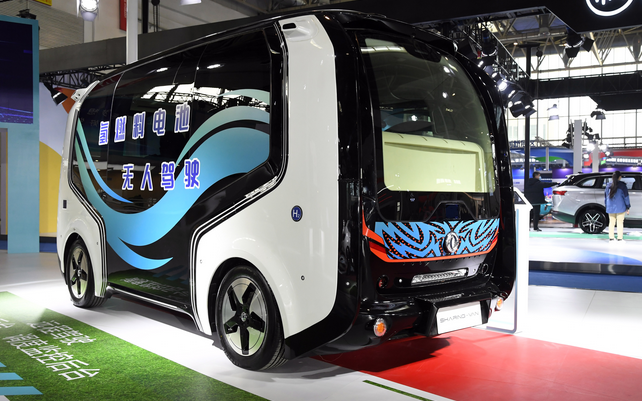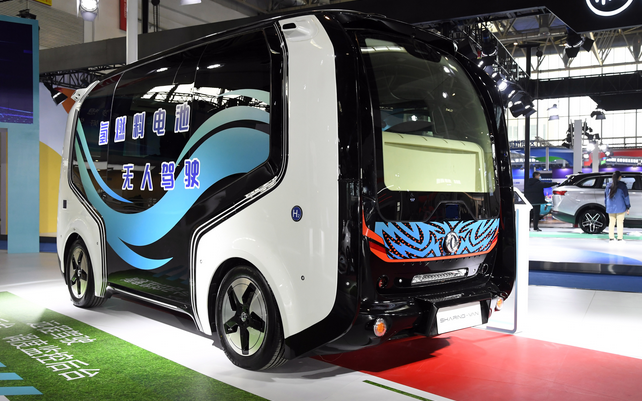
Photo taken on Nov. 12, 2020 shows an unmanned vehicle powered by hydrogen fuel cell displayed at the 2020 World Intelligent Connected Vehicles Conference held in Beijing, capital of China. (Xinhua/Ren Chao)
BEIJING, Aug. 17 (Xinhua) -- Beijing Municipal Bureau of Economy and Information Technology on Monday issued an implementation plan for the development of hydrogen energy industry from 2021 to 2025, aiming to support energy transition in the Beijing-Tianjin-Hebei region and lead national hydrogen energy technological innovation and industrial development.
Relying on major demonstration projects of the 2022 Olympic and Paralympic Winter Games, Beijing will cultivate five to eight leading hydrogen enterprises with international influence, make the scale of hydrogen industry in the Beijing-Tianjin-Hebei region exceed 50 billion yuan and reduce carbon emissions by one million tonnes by 2023, according to the implementation plan.
By 2023, the capital city will advance construction of gas-hydrogen combined stations, strive to build 37 hydrogen refueling stations, and promote use of 3,000 hydrogen fuel cell vehicles.
In the field of distributed energy supply, Beijing will carry out hydrogen energy plus renewable energy demonstration projects in the Beijing-Tianjin-Hebei region, promote application of distributed power generation and co-generation in business centers, data centers, hospitals and other scenarios by 2023. Meanwhile, the city will make technological breakthroughs in green ammonia, liquid hydrogen and solid hydrogen storage and supply.
The implementation plan also proposes that by 2025, Beijing will nurture 10 to 15 internationally influential hydrogen enterprise leaders, form industrial clusters of key components and equipment manufacturing of hydrogen energy, make the Beijing-Tianjin-Hebei region's hydrogen industrial scale reach over 100 billion yuan, and cut carbon emissions by two million tonnes.
By 2025, the city will work to complete construction of additional 37 hydrogen refueling stations, and promote more than 10,000 hydrogen fuel cell vehicles.
In the area of distributed energy supply, efforts will be made to build demonstration communities of smart hydrogen application by 2025, with the installed capacity of distributed power generation system hitting over 10 megawatts.
In 2020, the output value of Beijing's hydrogen energy industry amounted to about three billion yuan. As of the end of 2020, the capital city was home to about 150 enterprises and institutions in the hydrogen energy industry, including 73 specialized in hydrogen energy supply and 89 in hydrogen fuel cells. (Edited by Su Dan with Xinhua Silk Road, sudan@xinhua.org)




 A single purchase
A single purchase









